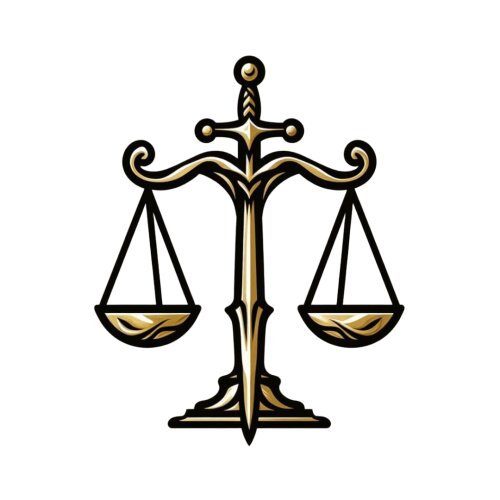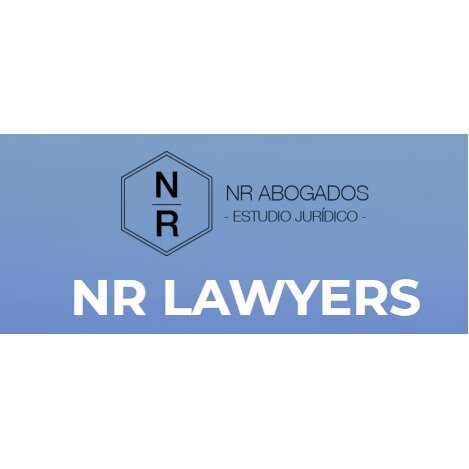Best Employment Rights Lawyers in Argentina
Share your needs with us, get contacted by law firms.
Free. Takes 2 min.
Or refine your search by selecting a city:
List of the best lawyers in Argentina
About Employment Rights Law in Argentina
Employment rights in Argentina are primarily guided by the Labor Contract Law (Ley de Contrato de Trabajo) and related statutes that outline the rights and obligations of both workers and employers. Key principles include job stability, minimum wage requirements, fair working conditions, and the right to safe and healthy work environments. Argentina's labor laws are comprehensive and serve to balance the power dynamics between employees and employers, promoting fair treatment and the protection of workers' rights.
Why You May Need a Lawyer
There are many situations where you might need legal assistance regarding employment rights in Argentina. Common issues include unlawful termination, discrimination, harassment in the workplace, unpaid wages or benefits, and disputes regarding working conditions or contracts. Navigating these challenges can be complex, and a lawyer can offer valuable advice and representation to protect your rights and interests. Additionally, legal help might be necessary when dealing with labor unions or negotiating collective bargaining agreements.
Local Laws Overview
Key aspects of employment rights in Argentina include:
- Contract Types: Argentina recognizes different kinds of employment contracts, including indefinite, fixed-term, and temporary contracts. Each type has specific regulations concerning termination and workers' rights.
- Working Hours: The standard workweek is capped at 48 hours, with overtime regulations in place to ensure fair compensation for additional work hours.
- Minimum Wage: The government sets a national minimum wage, which is periodically reviewed and adjusted to reflect economic conditions.
- Equal Treatment: Anti-discrimination laws in place protect against unjust treatment based on gender, race, religion, or other personal factors.
- Health and Safety: Employers are required to maintain a safe working environment, complying with safety standards and providing necessary training.
- Termination and Severance: There are detailed laws relating to employee termination, requiring notice periods and severance payments under specific conditions.
Frequently Asked Questions
What rights do I have if I am unfairly dismissed?
If you believe you've been unfairly dismissed, you may be entitled to compensation or reinstatement. It's crucial to consult with a lawyer, who can assess your case based on current laws and your employment contract.
How is overtime calculated in Argentina?
Overtime is typically paid at a rate of 1.5 times the regular hourly wage on weekdays and double the rate on weekends and holidays. Overtime should not exceed a specified number of hours per week or month.
What are my rights regarding maternity or paternity leave?
Mothers are entitled to 90 days of maternity leave, while fathers are entitled to two days of paternity leave. Employers must maintain job positions and provide pay during such leaves.
Can my employer change my work hours without my consent?
Significant changes to work hours must be justified and agreed upon by the employee. Changes made unilaterally by the employer may be contested.
Am I entitled to vacation days?
Yes, the length of paid vacation days is determined based on the employee's years of service, starting from 14 days for those with less than five years of service.
What should I do if I face harassment at work?
Collect any evidence of harassment and report it to human resources or a superior. Consulting a lawyer can help you understand possible remedies under employment and civil law.
Is it mandatory for my employer to provide health benefits?
Employees in Argentina generally receive health coverage through the social security system, and employers deduct a portion of salaries to contribute to this system. Supplemental corporate health benefits are not mandatory but may be offered.
What are labor unions in Argentina, and what role do they play?
Labor unions represent workers in various industries, focusing on negotiating better wages, benefits, and working conditions. They are active in collective bargaining and dispute resolution with employers.
Can I be forced to retire at a certain age?
There is no forced retirement age in Argentina. However, retirement conditions, such as age and years of service for pension eligibility, are governed by national social security laws.
How can I resolve a workplace dispute without going to court?
Alternative dispute resolution mechanisms like mediation and arbitration are often used to settle disputes without court proceedings. These processes are private and can be more cost-effective and quicker than litigation.
Additional Resources
For additional assistance, you may refer to the following organizations:
- Minister of Labor, Employment, and Social Security: Governmental body overseeing labor laws and worker protection.
- Argentine Workers Confederation (CGT): The largest labor union coalition advocating for workers' rights.
- Mediation and Arbitration Centers: Offer alternative methods for resolving employment disputes.
Next Steps
If you need legal assistance in employment rights, consider the following steps:
- Document Everything: Keep thorough records of any documentation related to your employment, such as contracts, pay slips, and any communication with your employer.
- Consult a Lawyer: Seek a lawyer specializing in employment law who can provide tailored advice and representation for your situation.
- File an Official Complaint:If necessary, lodge a formal complaint with relevant authorities, like the Ministry of Labor, to initiate an investigation or redress.
- Mediation or Arbitration: Explore alternative dispute resolution methods to potentially resolve disputes amicably.
Understanding your rights and obligations is crucial in navigating the complex landscape of employment law in Argentina. Seeking professional legal advice can significantly enhance your ability to secure and protect these rights.
Lawzana helps you find the best lawyers and law firms in Argentina through a curated and pre-screened list of qualified legal professionals. Our platform offers rankings and detailed profiles of attorneys and law firms, allowing you to compare based on practice areas, including Employment Rights, experience, and client feedback.
Each profile includes a description of the firm's areas of practice, client reviews, team members and partners, year of establishment, spoken languages, office locations, contact information, social media presence, and any published articles or resources. Most firms on our platform speak English and are experienced in both local and international legal matters.
Get a quote from top-rated law firms in Argentina — quickly, securely, and without unnecessary hassle.
Disclaimer:
The information provided on this page is for general informational purposes only and does not constitute legal advice. While we strive to ensure the accuracy and relevance of the content, legal information may change over time, and interpretations of the law can vary. You should always consult with a qualified legal professional for advice specific to your situation.
We disclaim all liability for actions taken or not taken based on the content of this page. If you believe any information is incorrect or outdated, please contact us, and we will review and update it where appropriate.
Browse employment rights law firms by city in Argentina
Refine your search by selecting a city.















